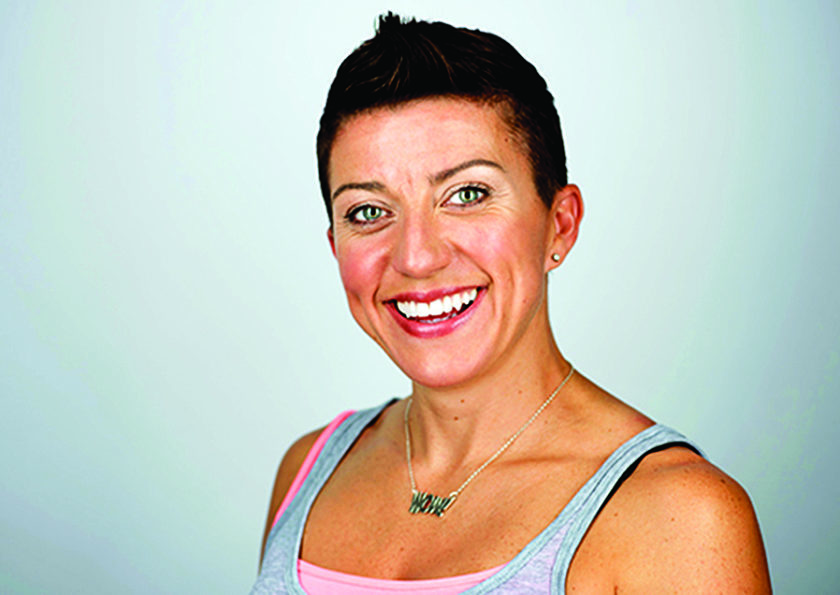The art of listening is core to the financial planning profession, says Michelle Hoskin, managing director, Standards International. But is it really practiced?
In June 2019, I attended a Million Dollar Round Table (MDRT) meeting in Miami, Florida. Approximately 15,000 financial advisers gathered together under one roof, excited about what the next three days would uncover. As I sat there, ready for the opening speaker, I felt inspired by the energy in the room. Enthused by the buzz, I was about to get my annual fix of pure, unfettered motivation.
Sound expert Julian Treasure opened the meeting with his presentation ‘How to speak so that people want to listen’. I listened with intent so that I could learn as much as possible to share with our wonderful group of clients and professional partners back in the UK. However, as I listened, a certain sadness came over me – how was it that the main keynote speaker was standing in front of so many financial advisers teaching this life-changing skill: that, in order to be heard, we must change the way we speak.
Don’t people listen? It would appear not!
After nearly 25 years in financial services, I think the one skill that I wish fuelled our profession much more than it does is the art of listening: the essential attribute of seeking to understand before being understood.
This seems so simple, so basic and so obvious, but frequently – even in the conversations I have with planners, their teams and often their clients – while the desire to listen is strong, the ability to understand is sadly not.
For sure, the sector has come a long way, and with the introduction of financial planning, life planning, lifestyle planning and now life-centred financial planning, it would appear that we’ve cracked it, right? Or maybe not?
I think if we are honest, most of us, including me at times, really only listen for words that trigger in us some form of action, whether that be action to respond, action to advise or action to fix. But that’s not the real reason we need to listen. Our words and the words of others are extremely powerful: they are a window into our hearts, our souls and, ultimately, our lives.
Personally, I am always fascinated by what’s not said. The words and statements that are missing from sentences, absent from stories and left out of conversations – this is where I believe the magic of true listening lies.
If we cast our minds back to our school days and the lessons we were taught, one lesson that I believe was, and still is, missing from the curriculum – and quite honestly still isn’t present in anywhere near-enough adult teaching – is the skill of listening.
Mental Health First Aid (MHFA) England cites research from C. H. Swanson (1984) that, in our lifetime, we receive between 0 and 0.5 years’ worth of training in the art of listening, yet we spend 45% of our lives listening. How can there be such a discrepancy?
Modern-day life, modern-day vibes!
Modern-day living is complex. According to mental health research from the beginning of 2020, there were 1,000,000,000 (yes, that’s a billion) people who were registered at the time with anxiety and depression – and that figure went up by 25% in the first year of Covid-19. And let’s not miss that those figures only count people who were ‘registered’, which means the figures are likely to be significantly higher!
Do we need to be given greater opportunity to be heard and understood? Absolutely we do! Now more than ever!
So my question for you is: do you have the skills that you need in order to support those around you with the everyday challenges they are facing?
Maybe you do, maybe you don’t – but if we focus first on the art of listening, then I believe this will go a very long, and important, way in putting us in a wonderful position to add value to the work we do.
1. Pay attention to what is being said.
When someone is talking, pay attention, remove all possible distractions, lose the devices, the laptops and the screens, make eye contact, engage with the person – and listen. Listen so hard that if there were a test asking you to repeat what that person said word for word, you would pass with flying colours.
2. Hear the words that are not being said.
We often listen at a heightened level – a level that allows us to get the main points of what is being said – but at times the choice of words, and the words that are missing, hold the key to what is really going on. A friend recently told me that her husband has given up everything for her and the children. Now, in the context of what we were talking about, the sentence could appear to be true – factually accurate in her mind, and most people would have no reason to question what was being said. But lucky for her, I am not ‘most people’.
I wasn’t happy with the words she chose. While that statement may have been true, I knew that the choice of words and the context in which they were said were the key to unlocking many limiting beliefs that I believed were preventing her from moving forward with a fulfilled, happy life.
3. Be brave.
If you hear something that you feel uneasy about, question it. If you hear something that you don’t believe is true, question it. If you hear something that doesn’t make sense to you, question it.
Remember the statement ‘seek to understand before being understood’! In order to show that you’re truly listening, ask questions – not just easy questions, but the hard questions, the kind that might open up a can of worms. Ask, even if some of the questions make you feel a little bit uncomfortable. Some of my most important breakthroughs have come when someone has asked questions that made a huge difference to me but made them feel a little scared and uncomfortable. When you’re brave, amazing things happen, for you and others around you.
4. Recognise your own frames of reference.
Life is likely to be tricky for you at times, just as it can be for others. Look at your own journey – every step of the way has played a part in forming your own beliefs, your own set of values, your own opinions about how things should, and shouldn’t, be.
While I know it would never be your intention to impose any of your beliefs or opinions on others, unfortunately it’s something that cannot be helped. The truth is, there’s very little we can do about our own hardwiring, but what we can do is be aware that we carry it around with us all of the time.
By clearing your mind, putting your own life’s challenges to one side and focusing solely on the person and situation in front of you, you will be perfectly placed to help some of the most important people in your life navigate the challenges facing them.
So how has the financial sector changed in the past 25 years? In some ways not very much, and in other ways a crazy amount. But the role that we continue to have in the lives of those that matter the most should never be underestimated. To quote Winston Churchill, who in 1906 alluded to the age-old maxim, ‘where there is great power there is great responsibility’.






























